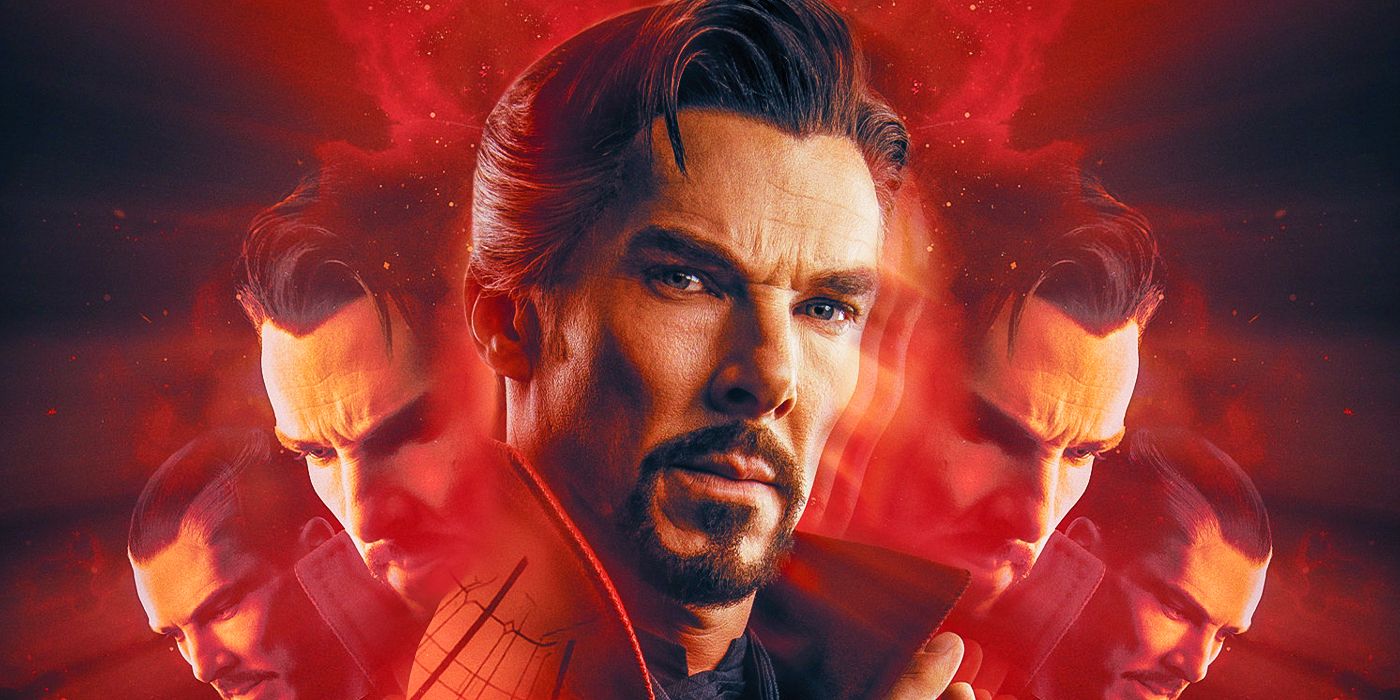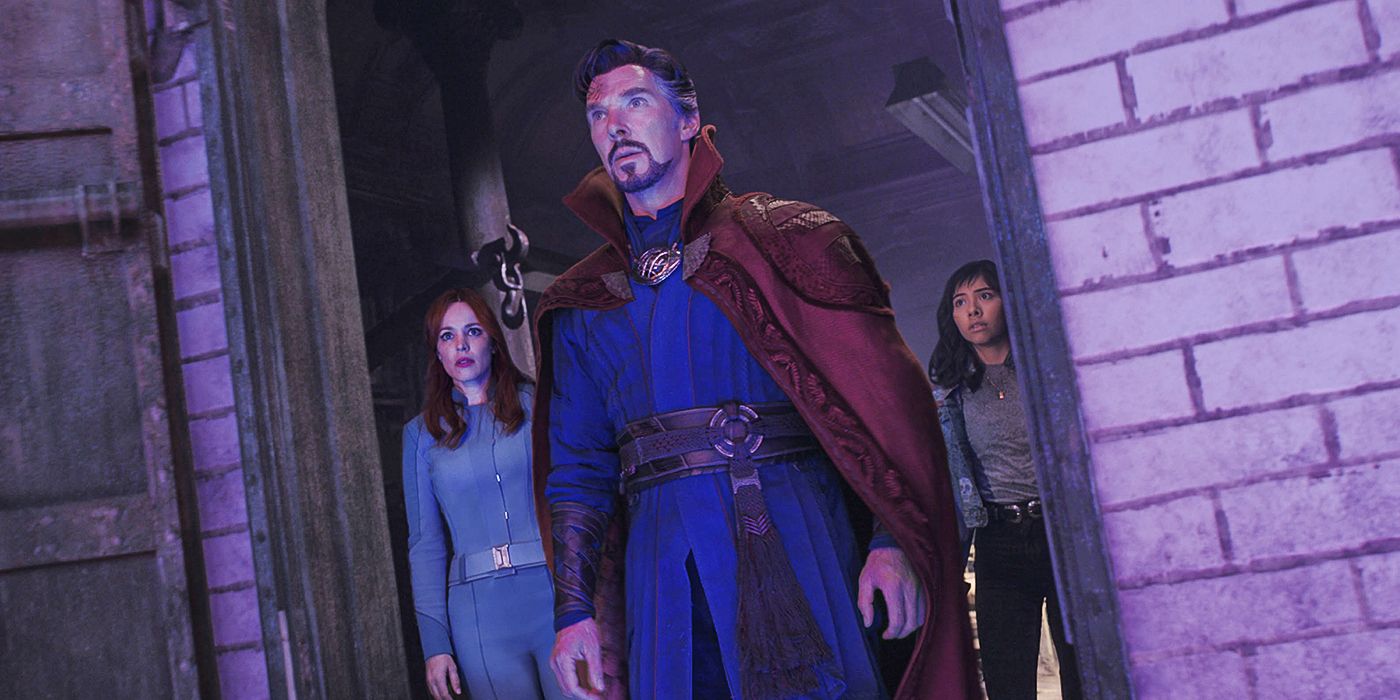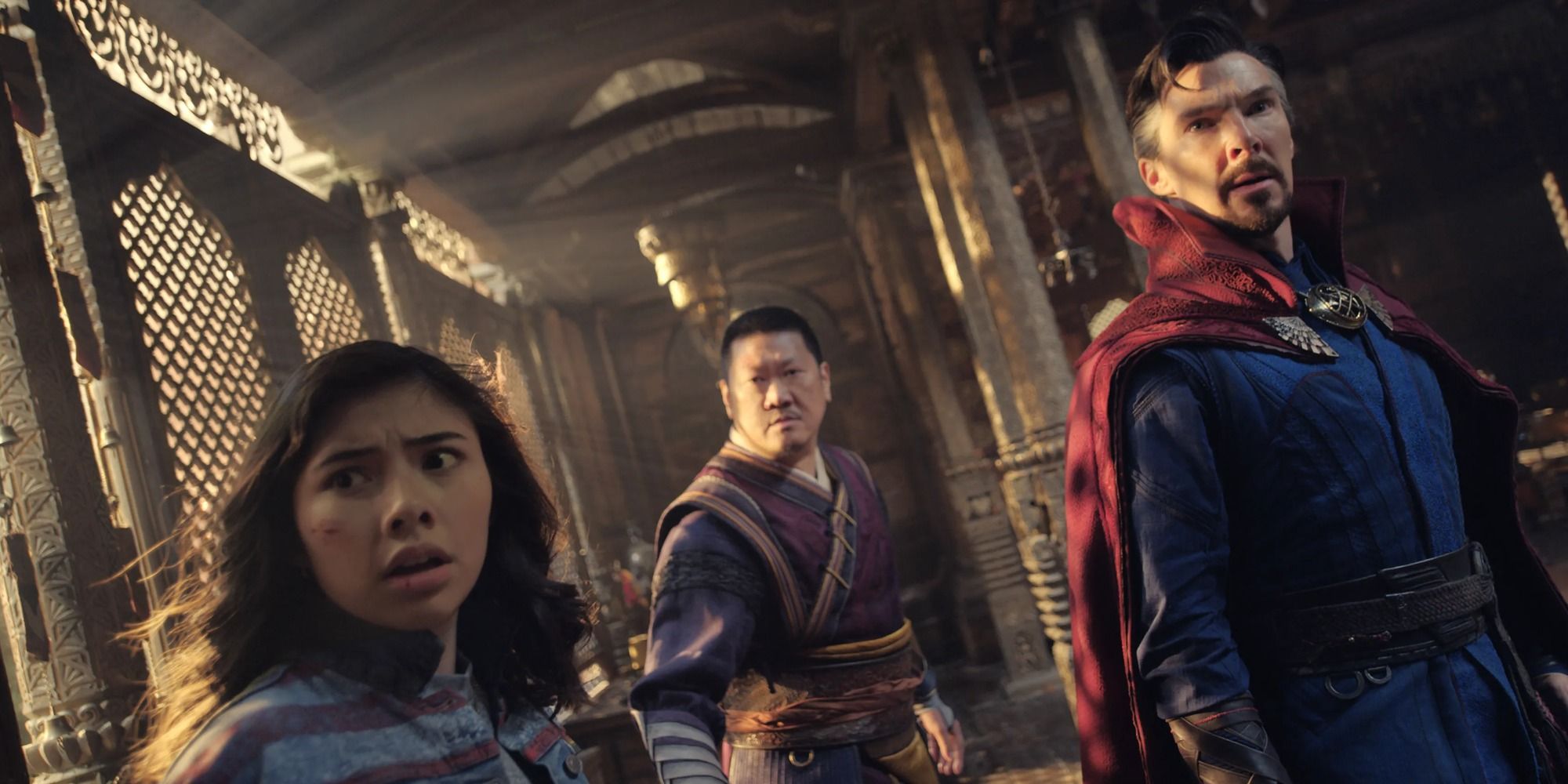Between Spider-Man: No Way Home and Doctor Strange in the Multiverse of Madness, the MCU seems prepared to make Doctor Strange (Benedict Cumberbatch) a mentor to some of the younger heroes. He fits the Tony Stark (Robert Downey Jr.) shaped hole almost perfectly – they are both rich, arrogant white men who became heroes after a tragedy forced them to look at the mark they were leaving on the world. Heck, they even have eerily similar facial hair. But it takes more than looks and attitude to make someone a good mentor. Influencing the next generation of heroes is no small task, and Strange just isn’t the man for the job right now, nor does it seem like he really wants to be. He hasn’t sought out young heroes to mentor. Instead, the two young heroes he’s worked with so far, Peter Parker (Tom Holland) and America Chavez (Xochitl Gomez), kind of just fell into his lap. He wasn’t prepared to be a mentor to them, and that has led to them having chaotic and not super fulfilling experiences. The growth these young heroes have isn’t necessarily because of Strange’s help, if anything it’s in spite of it.
To start, Strange isn’t a big fan of following the rules or taking responsibility for his actions. In No Way Home, Peter goes to Dr. Strange for help after Mysterio (Jake Gyllenhaal) frames Spider-Man for his death and reveals his identity to the world. He and his friends have been denied admission from multiple universities, including their dream school MIT, and Peter wants to try and fix things. Strange immediately agrees to help, they went through hell together against Thanos (Josh Brolin) after all. However, Strange, the adult in this relationship, decides that a volatile memory erasing spell is the best course of action to help Peter. Wong (Benedict Wong), his colleague and the Sorcerer Supreme, strongly advises against using this spell, but Strange does it anyway. When the spell inevitably goes wrong, he blames Peter for trying to make changes to it instead of taking responsibility for the fact that he forgot to ask Peter background questions about his situation before casting the spell. A simple “Hey, Peter, is there anyone you do want to remember your secret identity?” or even “Have you tried calling the admissions office?” before casting a spell that even Wong is wary of would have saved them both so much time and effort. This isn’t to say that mentors can’t be flawed, but rather that they need to have enough self-awareness to admit when they are wrong and not blame a kid for breaking the multiverse.
Remember though, Strange isn’t actively seeking young heroes to mentor, nor should he be. So far, they kind of just appear at his doorstep. Sure, he’s quick to help Peter by casting the spell, but as soon as things go wrong, Strange dismisses him and his ideas on how to fix the situation. He blames Peter for messing things up and yet also gets frustrated when Peter tries to make things right in his own way. Ultimately, it’s Aunt May (Marisa Tomei), Ned (Jacob Batalon), MJ (Zendaya), and the Peters from other universes (Andrew Garfield and Tobey Maguire) that trust in Peter’s plan to help the villains before sending them home. The Peters help him see that it’s the right thing to do even after the Green Goblin (Willem Dafoe) kills May. They are the ones that inspire Peter and help him grow as a person, and a hero, throughout No Way Home, not Strange.
Like Peter, America Chavez essentially shows up without warning in Multiverse of Madness. Strange tries to help America avoid the demons that are after her powers, and protect her from the Scarlet Witch (Elizabeth Olsen), but becomes frustrated when he finds out they are stuck on Earth-838. Strange is used to having the answers to most things, magical and otherwise, so when America reveals that she doesn’t know how to control her powers yet, he gets a little annoyed that he is now responsible for getting them home. On top of that, Strange doesn’t seem too eager that America has to teach him the ins and outs of multiversal travel and how to interact with their new environment. Even though America doesn’t quite have confidence in her ability to control her powers yet, she does trust in herself to navigate this universe and find someone that can actually help them. Both of these young heroes have to be the bigger person in spite of Strange’s attitude toward the situations they find themselves in. They have to either seek outside reassurance or look within to find the confidence to move forward. Strange tends to forget that these heroes are still so young and aren’t “master” sorcerers – they still need occasional guidance from people with more experience.
When a young person is seeking advice from their mentor on screen, we usually get something along the lines of Coach Taylor’s “Clear eyes, full hearts, can’t lose.” from Friday Night Lights, Tony Stark’s “If you’re nothing without the suit, you shouldn’t have it.” from Spider-Man: Homecoming, or even the famous “With great power, comes great responsibility” that various versions of Uncle Ben, and now Aunt May, have told Peter Parker over the years. Whether it’s a few words or a full-blown speech, the statement from the mentor is typically something heartfelt and inspiring that the young person can reflect on when they’re out on the field or in battle alone. Strange, on the other hand, definitely shouldn’t quit his day job to become a motivational speaker. He tells Peter, MJ, and Ned simply to “Scooby-Doo this shit” when he tasks them with sending the villains back to their universes in No Way Home. When America is preparing to fight against the Scarlet Witch in Multiverse of Madness, she tells zombie Strange that she still can’t control her powers. While he does share some brief words of wisdom with the young hero, he really doesn’t say much more than a basic, “trust yourself,” a dismissive, “yes you can,” and a cocky, “you’re gonna kick that witch’s ass.” At the end of Multiverse of Madness, when America is struggling during her training at Kamar-Taj, Strange tells Wong that America needs to slow down, and be more patient. However, he fails to actually give this bit of advice to America when they talk mere seconds later. Sure, they share a heartfelt moment, but given that Strange always seems so eager for everyone to know what a smart and powerful sorcerer he is, it’s odd that he doesn’t see this as an opportunity to personally share his wisdom with America.
Even though Strange has been willing to lend a hand to these young heroes, he clearly has no real interest in being a mentor long-term. He is quick to dismiss their skills and ideas over his own, he doesn’t take responsibility for his own actions, and he sucks at giving useful or meaningful advice. Peter and America are still able to come into their own as young heroes, and overcome the challenges of their respective scenarios, but it’s not really because of anything Strange does for them. America is the one that uses her powers, and compassion, to stop the Scarlet Witch’s rampage. It’s Peter’s idea to sacrifice his relationships with others and their memory of him in order to save the multiverse. It’s honestly baffling that the MCU seems so intent on having Strange fill the mentor-void left by Stark given how much he has failed to inspire the youth so far. There may be a version of Doctor Strange out there that is ready to be a mentor, but it definitely isn’t from this universe.



